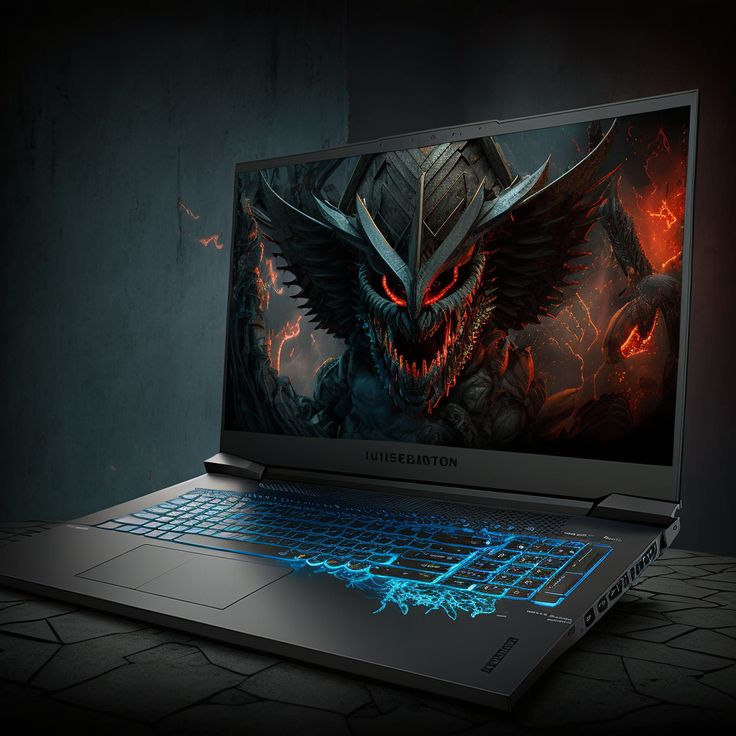In recent years, gaming laptops have surged in popularity, offering the convenience of portability without compromising on performance. However, with a myriad of options available in the market, selecting the right gaming laptop can be daunting gaming laptop. This comprehensive guide will walk you through the essential factors to consider when making your choice, ensuring you find the perfect machine to elevate your gaming experience.

1. Understand Your Gaming Needs
Before diving into the specifications, it’s crucial to identify what you primarily want from a gaming laptop:
- Type of Games: Are you a casual gamer or a hardcore enthusiast? If you play graphically demanding titles like Cyberpunk 2077 or Call of Duty, you’ll need a more powerful machine than if you primarily enjoy indie games or older titles.
- Multitasking Requirements: Consider if you’ll be streaming, video editing, or running other applications while gaming. This will affect the specs you need.
2. Key Specifications to Look For
a. Processor (CPU)
The CPU is the heart of your laptop. For gaming, focus on:
- Intel Core i5/i7 or AMD Ryzen 5/7: These processors provide excellent performance for most games.
- Latest Generation: Opt for the latest generation available within your budget, as they offer better performance and energy efficiency.
b. Graphics Card (GPU)
The GPU significantly influences your gaming experience:
- NVIDIA GeForce RTX Series or AMD Radeon RX Series: These cards support the latest gaming technologies like ray tracing and DLSS, providing superior graphics.
- VRAM: Aim for at least 4GB of VRAM for modern gaming.
c. Memory (RAM)
Having enough RAM is essential for smooth gameplay:
- Minimum 16GB: This is the standard for most modern games and multitasking. If you plan on heavy multitasking or future-proofing, consider 32GB.
d. Storage
Game sizes can be hefty, so storage is a crucial factor:
- SSD vs. HDD: SSDs offer faster load times and better overall performance. A combination of SSD (for the operating system and frequently played games) and HDD (for other files) is ideal.
- Capacity: Aim for at least 512GB SSD or 1TB HDD to accommodate your game library.
3. Display Quality
The display is where you’ll be experiencing your games:
- Resolution: 1920×1080 (Full HD) is standard, but consider 2560×1440 (QHD) or 3840×2160 (4K) for more detail if your budget allows.
- Refresh Rate: Higher refresh rates (120Hz or 144Hz) provide smoother gameplay, which is especially beneficial in fast-paced games.
- Panel Type: IPS panels offer better color accuracy and viewing angles than TN panels, making them preferable for gaming.
4. Battery Life
Gaming laptops are notorious for their limited battery life. However, some models manage to balance power and efficiency:
- Realistic Expectations: Expect 4-6 hours of battery life during regular use, but gaming will drain the battery quickly. Look for laptops with good battery management features.
5. Cooling System
Gaming laptops can heat up during intense gaming sessions:
- Cooling Solutions: Look for laptops with robust cooling systems, such as dual-fan designs and heat pipes, to prevent overheating and maintain performance.
- Noise Levels: Consider how loud the fans are, especially if you prefer a quieter environment.
6. Build Quality and Design
Durability and aesthetics can influence your choice:
- Material: Metal chassis often offer more durability than plastic ones. Check for quality hinges and keyboard feel.
- Portability: If you plan to travel frequently, consider the laptop’s weight and dimensions.
7. Connectivity and Ports
A good selection of ports is essential for gaming peripherals:
- USB Ports: Look for multiple USB 3.0 and USB-C ports for easy connectivity.
- HDMI/DisplayPort: Necessary for connecting to external monitors.
- Ethernet Port: Useful for stable wired connections during online gaming.
8. Budget
Gaming laptops can vary greatly in price:
- Setting a Budget: Determine your budget before shopping. Mid-range laptops typically offer a great balance between performance and price.
- Value for Money: Don’t compromise on key specs for less important features. Focus on what enhances your gaming experience.
9. Brand and Warranty
Reputable brands often provide better support and warranty options:
- Customer Service: Research customer service ratings and warranty policies. Brands like ASUS, Dell, and MSI are known for their gaming laptops.
- User Reviews: Check online reviews to gauge user satisfaction with the performance and reliability of the model you’re considering.
Conclusion
Choosing the perfect gaming laptop involves careful consideration of your gaming preferences and needs. By focusing on essential specifications, build quality, and your budget, you can find a laptop that not only meets your current gaming requirements but also stays relevant for years to come. With the right gaming laptop in hand, you’ll be well-equipped to enjoy the latest titles and immerse yourself in the gaming world like never before. Happy gaming!
4o mini
